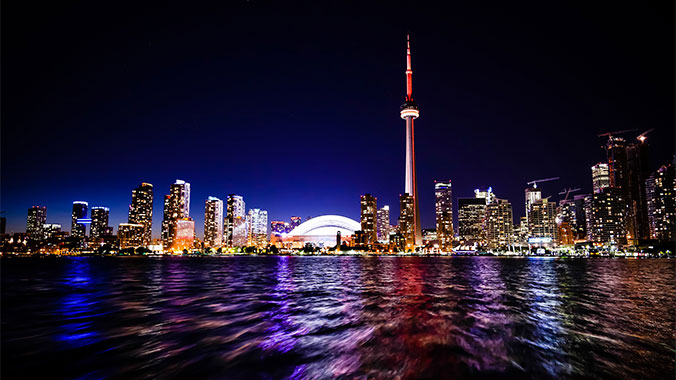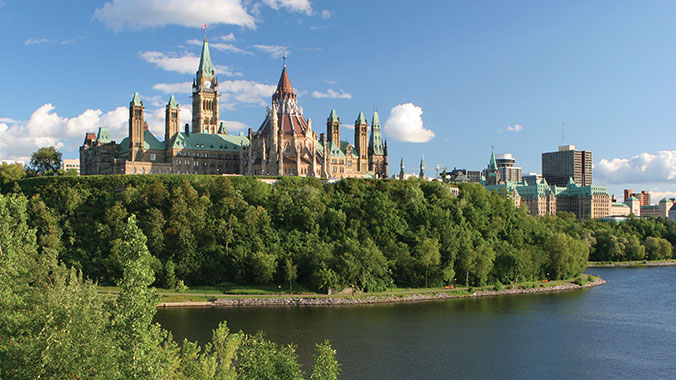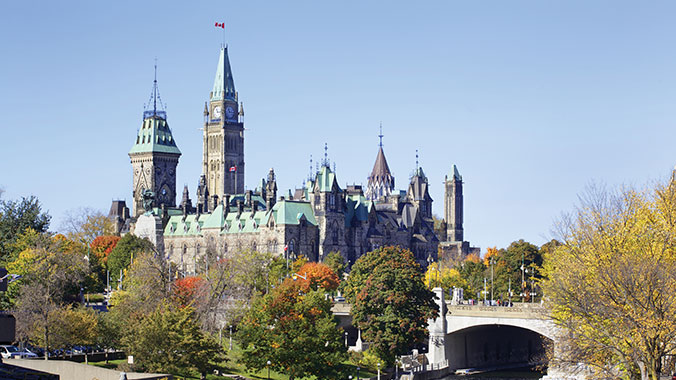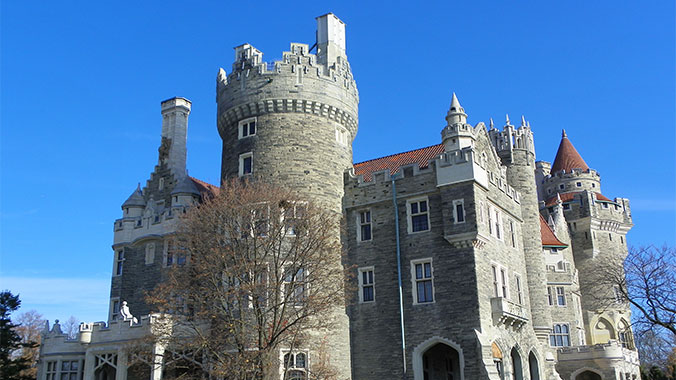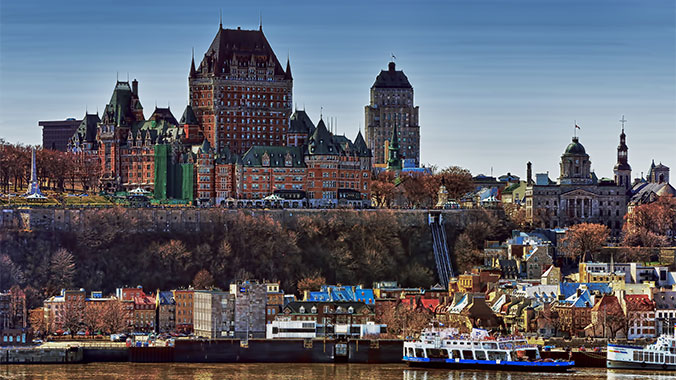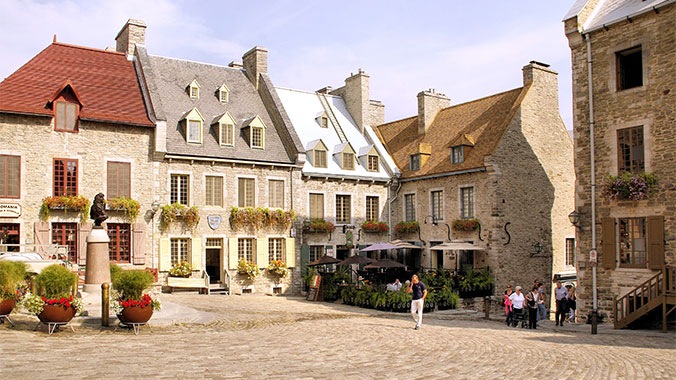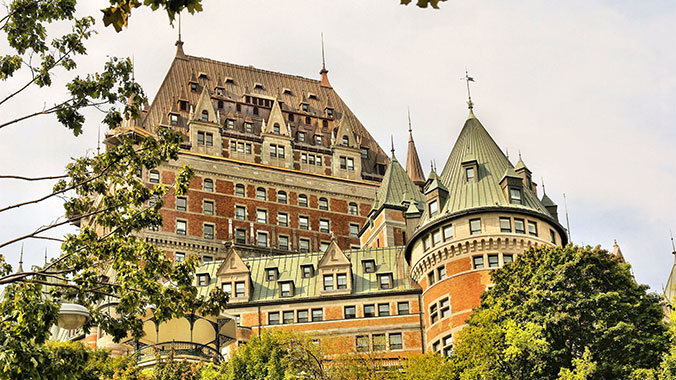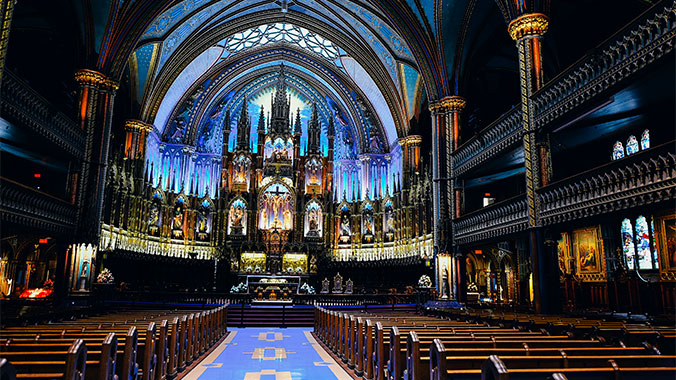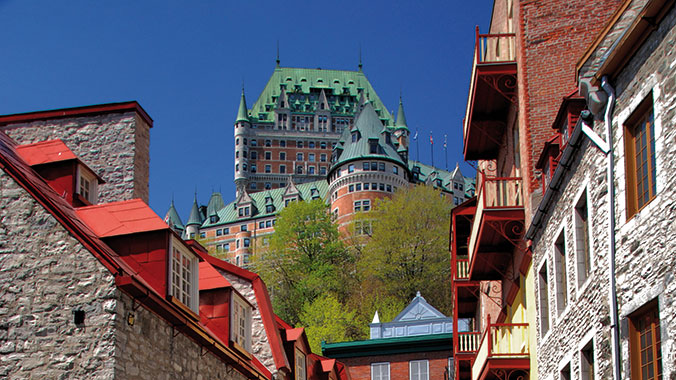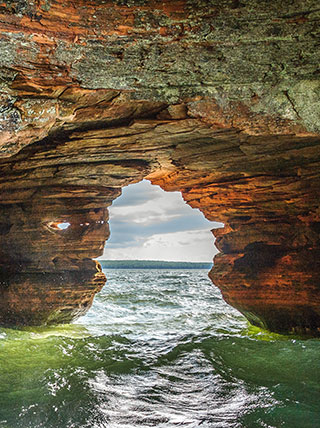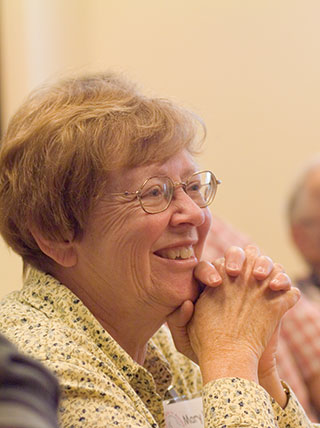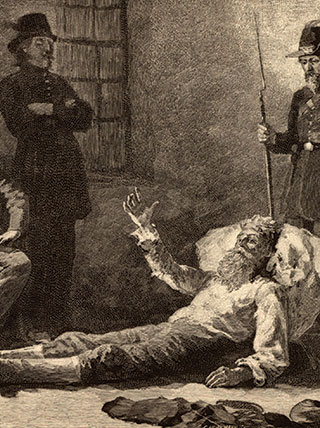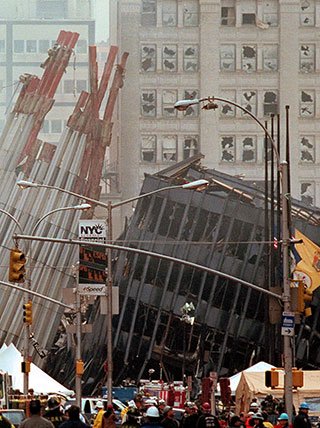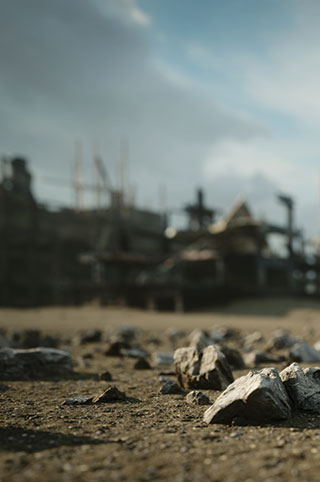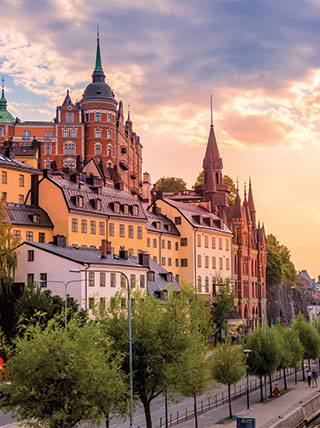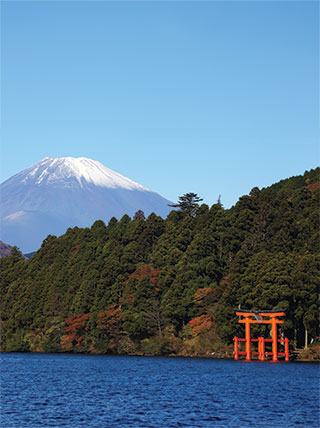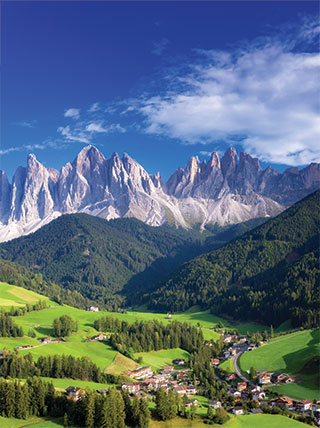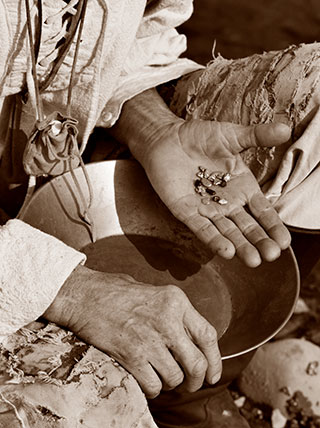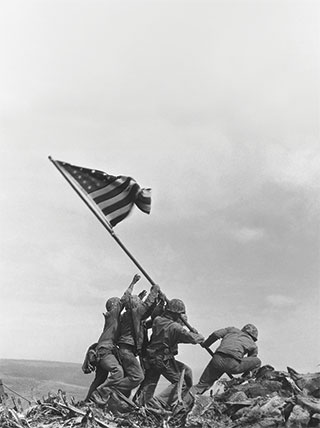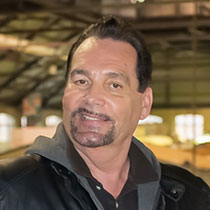
Canadian Odyssey: Québec City to Toronto
Enroll with Confidence
We want your Road Scholar learning adventure to be something to look forward to—not worry about. Learn more
Protecting the Environment
We offset a portion of the emissions created by your travel. Learn more
At a Glance
What You'll Learn
- Visit the magnificent Notre Dame Basilica, a masterpiece of Gothic revival architecture.
- Discover upper and lower town in Old Québec, exploring fortifications that date from 1745.
- Journey from Ottawa's Parliament Hill to Old Town Toronto and the historic St. Lawrence Market.
General Notes

Please note: This expert may not be available for every date of this program.


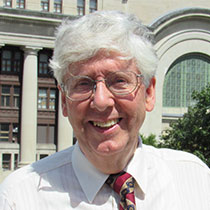
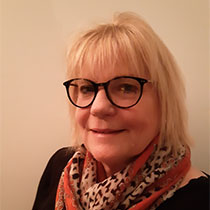
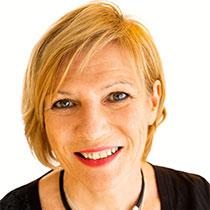
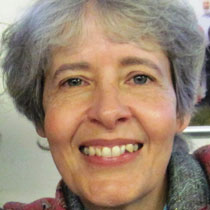

Activity note: Hotel check-in from 4:00 p.m.
Afternoon: Program Registration: 4:00-5:00 p.m. After you check in and have your room assignment, join us at the Road Scholar table in the lobby to register with the program staff, get any updated information, and confirm the time and location of the Orientation session. If you arrive late, please ask for your packet when you check in and the front desk will be happy to help you. Then please locate your Group Leader and let them know you have arrived.
Dinner: At the hotel.
Evening: Orientation: 7:30 p.m. The Group Leader will greet everyone and lead introductions. We will review the up-to-date program schedule, discuss roles and responsibilities, logistics, safety guidelines, emergency procedures, and answer questions. Program-related transportation will be via private motorcoach unless noted otherwise. We will use public transportation for one field trip; public transportation is also available for free-time use. Periods in the schedule designated as “Free time” and “At leisure” offer opportunities to do what you like and make your experience even more meaningful and memorable according to your personal preferences. The Group Leader will be happy to offer suggestions. Program activities, schedules, personnel, and indicated distances or times may change due to local circumstances/current conditions. In the event of changes, we will alert you as quickly as possible. Thank you for your understanding. You may wish to begin exploring what the city has to offer. The hotel is within walking distance of restaurants, shops, and attractions including the Québec City Fortifications, Le Capitole Performing Arts Centre, and the Chateau Frontenac. Continue getting to know your fellow Road Scholars, settle in, and get a good night’s rest for the day ahead.
Activity note: Walking up to 2 miles and standing during field trip, approximately 2 hours; some uneven terrain, stairs, cobblestones.
Breakfast: At the hotel.
Morning: We will gather for a presentation introducing the history of Québec City. As we learn about the dramatic history of Canada’s oldest city — founded in 1608 by the intrepid Samuel de Champlain — historic images and pertinent commentaries will summarize noteworthy events and notorious characters who have shaped the illustrious history of this World Heritage City. We’ll then set out on an expert-led walking field trip through Old Québec that will provide an excellent overview of the city while learning about the principal historical events that occurred here. The city was awarded its World Heritage City designation in 1985 based partially on the preservation of the fortifications around the Old Town that date from 1745. This area has a distinct European feel with its stone buildings and winding streets lined with shops and restaurants.
Lunch: At a local restaurant.
Afternoon: Next, we will walk to the Pôle culturel du Monastère des Ursulines where a museum expert will lead our exploration as we learn about the educational mission of the Ursuline nuns and their way of life. The Ursulines landed in New France in 1639 and concerned themselves with the education of girls, both French and Native. The Convent is the oldest institution of its kind in North America and is housed in buildings erected at various times during the monastery’s three and a half centuries of existence. The Chapel dates from the early 20th century and preserves the interior decor of the original 1730s chapel. The Ursulines museum contains one of the richest ethnographic and artistic collections passed down from the early days of New France, including exquisite embroidery works by the nuns.
Dinner: At a local restaurant.
Evening: At leisure.
Activity note: Getting on/off a motorcoach; city driving, approximately 2+ hours riding time. Walking up to 1 mile and standing, approximately 1.5 hours. Uneven terrain, stairs.
Breakfast: At the hotel.
Morning: At the hotel, we will gather for a presentation to learn about Québec’s evolution from a traditional to a modern society. From its foundation in 1608, Québec has developed under the ascendancy of the Roman Catholic Church. For much of its history, the Church was omnipresent and omnipotent in French Canadian society but the period of the 1960s — also known as the “Quiet Revolution” — marked a radical change when Québec developed into a modern, secular society. Today, Québec has developed it own identity. We’ll then board a motorcoach and ride to National Battlefields Park, also known as the Plains of Abraham with commentary by a local historian. We’ll explore the site of many clashes for supremacy between the French and British Empires. After our field trip, we’ll ride to the Musée national des beaux arts du Québec.
Lunch: At a local restaurant
Afternoon: During our field trip to the Musée National des Beaux Arts du Québec, we will explore the exhibits with a museum expert. The museum is made up of three linked buildings that display an impressive array of architecture. The museum’s collection includes more than 22,000 works produced mainly in Québec from early colonial times to the present day. The museum acts as a custodian, keeping alive the memory of Québec art and artists. The Group Leader will accompany those who wish to return to the hotel aboard the motorcoach.
Dinner: On your own.
Evening: At leisure.
Activity note: Getting on/off a motorcoach; driving about 170 miles, approximately 3 hours riding time. Walking up to 1 mile and standing during field trip, approximately 1.5 hours.
Breakfast: At the hotel.
Morning: We will check out of the hotel, board a motorcoach and ride to Montréal. Once here, we’ll explore the birthplace of Montréal, at Pointe-à-Callière Museum, with an expert. Rising above evidence of more than 1,000 years of human activity, this museum houses remarkable architectural remains, displayed on site with absolute respect for their integrity. Pointe-à-Callière delves into the past to foster a debate on urban issues both local and global, and to encourage us to reflect on the future.
Lunch: At a local restaurant.
Afternoon: Next, we will visit the McCord Stewart Museum where we will be joined by a museum expert to learn about the the eleven Indigenous nations in Québec. We will then ride to our hotel for check-in.
Dinner: At a local restaurant.
Evening: At leisure.
Activity note: Walking up to 2 miles and standing during field trips, approximately 2 hours; some uneven terrain, cobblestones in Old Montréal, stairs at entrance of Basilica.
Breakfast: At the hotel.
Morning: We'll start the day with an introductory lecture on Montreal, with a focus on the culture of this world-class city. We will then set out on a walking field trip to the magnificent Notre Dame Basilica, a jewel of Montréal. This masterpiece of Gothic revival architecture is renowned for its interior, sculpted in wood, paint and gold leaf. We will learn about the history of Notre Dame, then enjoy a private organ recital. More than 100 years old, the Basilica’s organ is a world-renowned masterpiece.
Lunch: At a local restaurant.
Afternoon: We will set out on a walking field trip with a local expert to explore the architectural history of Old Montréal along its cobbled streets. Notable highlights will include Place d’Armes and Place Jacques Cartier. This historic city center is rich in museums, galleries, restaurants, and grey stone architecture spread out along narrow, cobblestone streets. Stroll through Place Jacques Cartier, a lively public square, and then turn south to the Vieux Port (waterfront). Its impressive facilities include a 1.5-mile long recreational park along the St. Lawrence River, a state-of-the-art science center, a theater, antiquarian bookshops, and inviting cafés. The Group Leader will accompany those who wish to return to the hotel.
Dinner: On your own.
Evening: At leisure.
Activity note: Getting on/off a motorcoach; driving about 150 miles, approximately 4 hours riding time. Walking up to 1 mile and standing during field trips; indoors and exterior pavement.
Breakfast: At the hotel.
Morning: We’ll check out of the hotel, board a motorcoach, and ride to Ottawa, Canada’s capital city. With curatorial staff at the Canadian Museum of History, we will learn about the history of Canada’s Aboriginal peoples, their fight for cultural survival, and admire the wealth of their contributions to Canadian society. This a remarkable journey will take us through 1,000 years of Canadian social history.
Lunch: At the Museum of History.
Afternoon: Next, we’ll go on a field trip by motorcoach with a local expert. Highlights will include East Block, oldest of the Parliament buildings (1865); Confederation Square; War Memorial; Tomb of Unknown Soldier; former Union Station/Chateau Laurier; Rideau Canal Locks (1832); Lockmaster’s House (1884); National Arts Centre; City Hall; National Defence HQ; and more. We will ride back to the hotel after our field trip.
Dinner: At the hotel.
Evening: At leisure.
Activity note: Walking about 2 miles and standing during field trips, approximately 1.5 hours; exterior pavement.
Breakfast: At the hotel.
Morning: This morning we head out on foot with our local expert to view the city as it was first conceived with the river as its main highway and resource. As we go, we’ll see the natural beauty of the region that captured the imagination of the first European explorer Samuel de Champlain. Highlights will include Parliament Buildings, ByWard Market and the National Art Gallery.
Lunch: At a local restaurant.
Afternoon: Free time. This period of time has been set aside for your personal independent exploration to see and do what interests you most. Please refer to the list of Free Time Opportunities. The Group Leader will be happy to offer suggestions. Please note that the period scheduled for free time is subject to change depending on local circumstances and opportunities for independent exploration.
Dinner: On your own.
Evening: At leisure.
Activity note: Getting on/off a motorcoach; driving about 125 miles, approximately 2 hours total riding time. Walking up to 2 miles and standing during field trips; exterior pavement. Getting on/off an excursion vessel; open air environment.
Breakfast: At the hotel.
Morning: We will check out of the hotel, board the motorcoach, and begin our ride to Kingston with a stop in the heart of the 1000 Islands for a boat cruise. Experience the tranquility of this lush landscape along the St. Lawrence River and learn about its history as a vacation destination for wealthy Americans that traces back to the Gilded Age. Following our cruise we will board our motorcoach and continue on to historic Kingston, Canada’s first capital.
Lunch: At a local restaurant.
Afternoon: This afternoon we will learn about Kingston's rich history on a walking exploration with our local expert. We will learn how Kingston fits into this nation’s evolution from colonial times to the present day and how the country went from inauspicious beginnings to a territorial land expanse second only to that of Russia.
Dinner: On your own.
Evening: At leisure.
Activity note: Getting on/off a motorcoach; driving about 165 miles, approximately 3 hours total riding time. Walking about 3 miles throughout the day, approximately 3 hours, and standing during field trips; city sidewalks, some stairs.
Breakfast: At the hotel.
Morning: This morning we will board our motorcoach and transfer to the city of Toronto, situated on the north shore of Lake Ontario.
Lunch: At a local restaurant.
Afternoon: We will be joined by a local expert for a presentation on the city of Toronto, past and present, and how it went from here to there. Toronto is the capital of the Province of Ontario and people have lived here since shortly after the last ice age, although the urban community only dates to 1793 when British colonial officials founded the Town of York on what then was the Upper Canadian frontier. That backwoods village grew to become the City of Toronto in 1834, and through its subsequent evolution and expansion Toronto has emerged as one of the most livable and multicultural urban places in the world today. We’ll then set out on a walking field trip to explore the city’s hidden gems that are often overlooked. Highlights will include Old Town Toronto; St. Lawrence Hall, Toronto’s first Post Office (1834); St. James Cathedral; and other historical sites along the way. The fusion of classic architecture and modern amenities is enhanced by the stunning view of Toronto’s skyline. We’ll end at St. Lawrence Market, a restored 1845 market building that is home to more than 50 specialty vendors.
Dinner: On your own.
Evening: At leisure.
Activity note: Use of public transportation. Walking up to 2 miles and standing during field trips, approximately 1.5 hours; exterior pavement, some stairs.
Breakfast: At the hotel.
Morning: Embark on an exciting expert led walk through Toronto's vibrant heart, starting at Toronto City Hall. Explore Old City Hall's historic charm before strolling down bustling Yonge Street and pausing at Yonge-Dundas Square. Discover the Eaton Centre's shopping paradise, then delve into the serene Church of the Holy Trinity. We continue to Nathan Phillips Square and Osgoode Hall, steeped in legal history, before immersing in Queen Street West's eclectic vibe and the Fashion District's chic atmosphere. Finally, we dive into the colorful world of Graffiti Alley, where street art is evidence of Toronto’s creative streak.
Lunch: On your own.
Afternoon: Free time. This period of time has been set aside for your personal independent exploration to see and do what interests you most. Please refer to the list of Free Time Opportunities. The Group Leader will be happy to offer suggestions. Please note that the period scheduled for free time is subject to change depending on local circumstances and opportunities for independent exploration.
Dinner: At the Hotel.
Evening: At leisure.
Activity note: Hotel check-out 12:00 Noon.
Breakfast: At the hotel. This concludes our program.
Morning: We hope you enjoy Road Scholar learning adventures and look forward to having you on rewarding programs in the future. Please join our Facebook page and share photos of your program. Visit us at www.facebook.com/rsadventures. Best wishes for all your journeys!
Recommended For You


